Wouldn’t it be great to take control of your health and fitness goals on your own, without having to pay someone else for help? If the answer is yes, you need a Fitness Coach, not a Personal Trainer.
Personal Trainer and Fitness Coach look like interchangeable terms, but looks can be deceiving. If you’re looking for long-term, lasting improvements in your health and fitness, in a way that fits sustainably into your lifestyle, you need to find an exercise professional that has evolved from just merely a Personal Trainer to a Fitness Coach. In this article I’ll unpack why understanding this important distinction is critical if you’re serious about making a positive, and lasting changes in your health.
Okay, so what is a Personal Trainer?
According to the Bureau of Labor Statistics: “trainers and instructors lead, instruct, and motivate individuals or groups in exercise activities.” That sounds good, but also pretty generic. The American Council on Exercise goes slightly further by saying Personal Trainers have: “relevant skills to design and apply unique exercise programs based on your clients’ goals, abilities and needs.”
Now we’re getting somewhere, as this sounds a little more specific, but there’s still something missing. To truly understand what a Personal Trainer is, you need to understand how they’re taught. While there are many different environments Personal Trainers are educated in, there are very striking consistencies in their educational curriculums, mostly comprised of:
- Anatomy, Physiology, and Biomechanics
- Pre-Exercise Health Screening
- Fitness Assessment
- Exercise Program Design (Aerobic, Strength, and Flexibility)
While these are all important things for a Personal Trainer to know, they are only helpful to write a good exercise program, but not a great exercise program. What’s the difference, you ask? A good exercise program checks all the technical boxes of proper program design taught in a Personal Trainer certification. A great exercise program goes an important step further to ensure it’s actually implemented consistently and sustainably into the client’s life. Indeed, the “perfect” exercise program that is not consistently implemented by a client will ALWAYS be ineffective. It’s on the implementation side that a Personal Trainer differs from a Health & Fitness Coach.
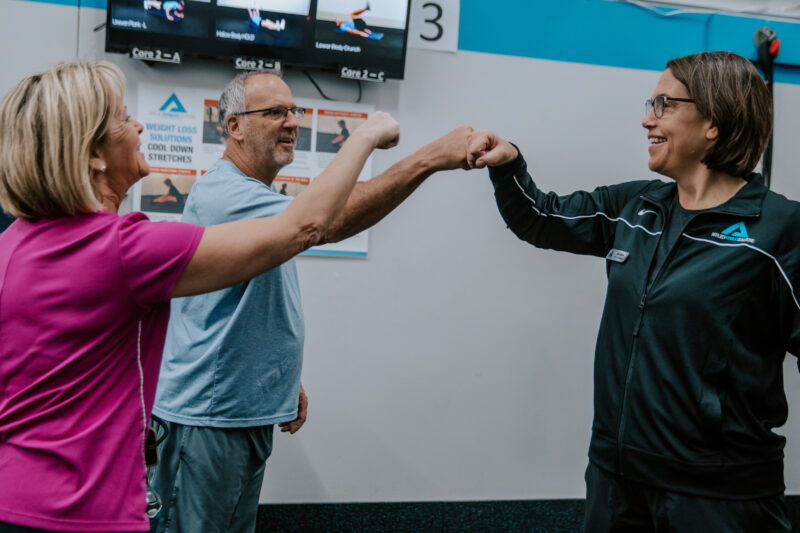
And, What is a Health & Fitness Coach?
First, let’s be abundantly clear on what a Health & Fitness Coach is not. We’re not talking about the stereotypical high football coach yelling at his players. Although this is the image that often comes to mind when we hear coach, this represents a misunderstanding of the term, particularly in the context of health behavior change.
An unfortunate reality is that most exercise professionals are former athletes who are quite used to the “sport coach” approach (which, as we’ll discuss below, is more of the expert approach). Because of this Personal Trainers often take on the traits of their old sport coaches, to their clients’ detriment. Personal Trainers need to quickly reframe their “coaching” paradigm in the manner I layout in this article. With that in mind, let’s get to what a real coach truly is. According to Wellcoaches,
“coaches provide instruction and mentoring to their clients, and help them set goals, define an action plan, and navigate the path until they reach their goals. Coaches facilitate learning and help clients put the learning into action.”
With this great definition in mind, we can start to understand what a Health & Fitness Coach truly is.
Health & Fitness Coaches certainly understand all of the elements listed above. Those are important to know as a Personal Trainer, but they are merely table stakes if you’re going to work as an exercise professional. They represent the floor for competency, not the ceiling. From this floor of technical knowledge, a Fitness Coach evolves to incorporate principles of coaching psychology to ensure the plan they co-create with their client gets implemented.
Language matters in this nuanced discussion we’re having about the difference between a Personal Trainer and a Health & Fitness Coach. In saying that, I want to point out some critical language that has just been introduced. Words like mentoring, navigating the path, and co-create are foundational to understanding the difference between a Personal Trainer and a Health & Fitness Coach. We’ll unpack those words and their important meaning below, but first we have to understand what the fundamental challenge a Health & Fitness Coach helps you overcome.
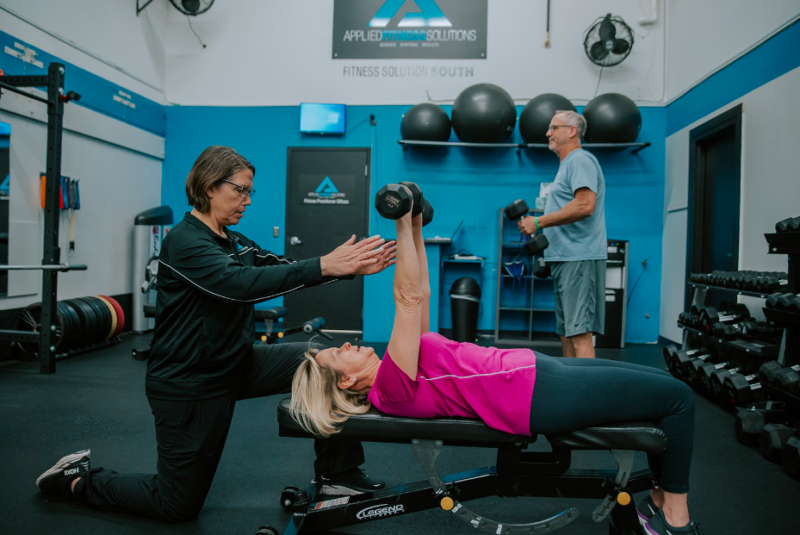
Behavior Change is the Goal
Ultimately, introducing a new exercise program into your life is a process of behavior change. At its most basic level the implementation of an exercise program requires you to change your behaviors. You currently have a set of behaviors that involve NOT doing an exercise program (or least the kind of program you need to do to achieve your health and fitness goals), and you need to transition into a set of behaviors that allow you to integrate this new program into your life.
We all know changing our habits and behaviors is hard, very hard in fact. Human beings are creatures of habit, and largely that’s a good thing. As the old saying goes “we’re a product of our habits.” Without habits existing in our life, we’d literally have to make thousands of conscious decisions during our day, that currently happen on the subconscious (or habitual) level. Our habitual behaviors are great when it comes to leading an efficient life, but they become a barrier when we’re trying to integrate something new into our lives.
You know this to be true whenever you’d tried to add something new into your life. No matter what the new behavior is, it is always challenging to eliminate old habits and build new ones. This is exactly what a great Fitness Coach will help you do (the operative word there is help, as you’ll actually do the hard work).
It’s often said that a great coach helps you shrink the gap between what you need to be doing to reach your goals, and what you’re actually doing. The question you’re probably asking yourself now is, “great, but how do they do that?” Fair question, let’s get the answer!
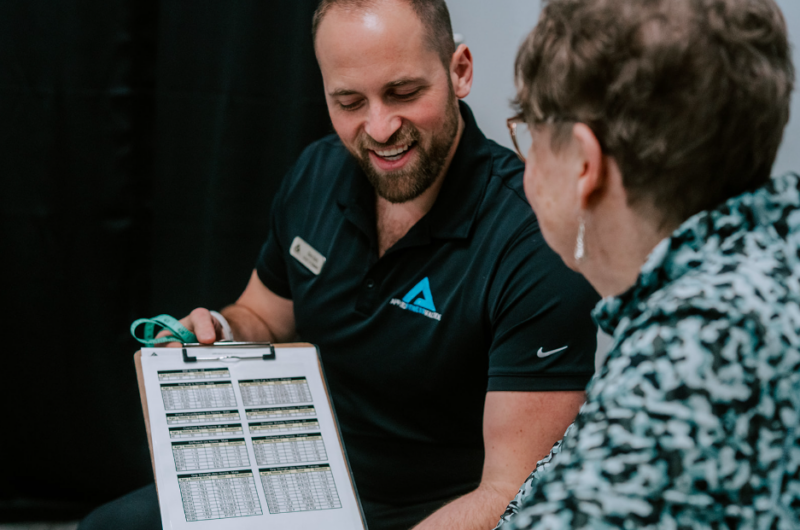
Expert vs. Coach Approach
There are two distinct approaches that have been used to encourage behavior change in individuals. These approaches have been applied in many settings from healthcare, to employee development and management, and certainly in the exercise profession.
The predominant approach that has been employed is the expert approach. The expert approach assumes that the person with all the knowledge (the doctor, the boss, the Personal Trainer) can just give that knowledge to the person that doesn’t have it and that will solve all of their problems. This is often referred to as the “sage on the stage” approach, and operates off the assumption that a lack of knowledge is the limiting factor to making a behavior change.
If only it were that simple, right? In fact, I’d venture to say that most of us know the things we need to do to reach our goals in life (be it exercise goals, career goals, relationship goals, etc.). The issue is NOT a lack of knowledge, but a lack of ability to implement that knowledge consistently in our lives.
That is where the coach comes in. Yes, the coach has knowledge, in many cases a lot more knowledge than the person they’re coaching. Your doctor knows more about medicine than you do, your boss probably knows more about your job than you do (although, some may beg to differ, haha), and an exercise professional certainly knows more about exercise program design than you do.
One critically important piece of information all of these professionals lack is the most important knowledge they could have – knowledge of you!! The professional may be the expert in their domain, but you are the expert on you and your life. This expertise about you and your life is central to the coaching process. Rather than acting as the “sage on the stage,” a great coach acts as the “guide on the side.” They blend their knowledge of their domain, with your knowledge of you, your lifestyle, your likes and dislikes, and all the other important pieces of information that ensure all the knowledge the expert has can be filtered through the lens of your lifestyle.
Traditionally, most Personal Trainers use the expert approach in a very transactional manner, and the client happily participates (or at least until they realize they’re not getting the results they want).
The transaction goes something like this, “I give you money, you give me fitness (or health or weight loss or insert goal here).” While this transactional approach works if you’re buying a lawn mower… “I give you money, you give me lawn mower” … it absolutely doesn’t work when it comes to behavior change. Why doesn’t it work? It all comes down to autonomy.
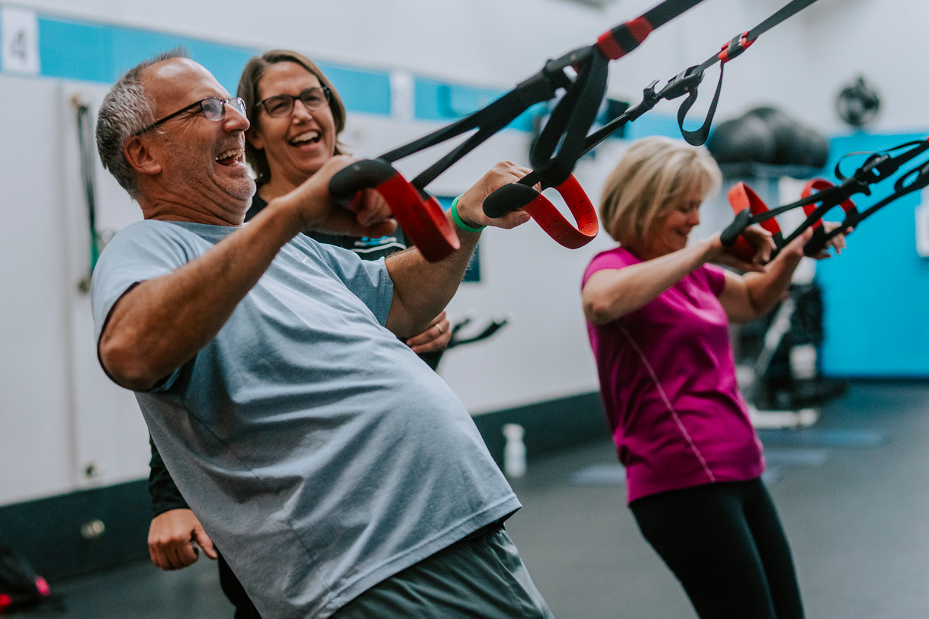
Health & Fitness Coaches Respect Autonomy
The most fundamental human need is the need for autonomy. There are many definitions of autonomy, but on its most basic level autonomy is about being free to make your own choices without being influenced by others. In essence, it’s about being free to do what you want, when you want, and how you want.
The fight for autonomy begins very early in life (think rebellious teenage years) and continues until the day we die (think the aging adult who refuses to go into an assisted living home). Autonomy is even the reason our country was founded (we want to be self-governing). Without getting overly philosophical here autonomy is at the core of who we are as humans, and it must always be respected.
When autonomy is not respected, we rebel. You can insert words like “don’t adhere,” “fall off the wagon,” “slip up,” or “go off track,” instead of rebel. The bottom line is when our autonomy is not respected, we have a much greater tendency to NOT do the things we know we probably should do.
Think about it, our natural tendency when someone tells us to do something (without giving us a choice), we immediately come up with all the reasons we shouldn’t do it. This reaction is ingrained into the deepest part of our brain, and is probably an important factor in our evolutionary survival – needless to say it’s not going anywhere.
This is why the expert approach doesn’t work, it doesn’t respect autonomy. The expert tells you “You should do it like this,” and our brain (sometimes consciously, other times subconsciously) rebels and comes up with all kinds of reasons and behaviors to not do it.
The coach, however, respects autonomy by seeing you, hearing you, and deeply understanding you and your lifestyle. They still have, and can provide, all the expertise necessary, but they rarely do. Instead, they listen intently, reflect back to you what you’re saying, and guide you down a path to where you’re the one actually making the choices about what behavior changes to implement into your life and how.
Don’t get me wrong, the coach is still using their expertise to put guardrails on the choices you make. Initially those guardrails will be pretty tight (i.e., do you prefer the bike, treadmill or elliptical trainer). Eventually, as you gain expertise and knowledge yourself in the domain those guardrails widen out.
In that sense, coaching is like parenting on some level. When your kids are young and lack knowledge/experience the guardrails are super tight. As they mature and gain knowledge/life experience you widen the guardrails. Eventually, you make the guardrails so wide, they go away completely (typically when they move out). This is exactly what great coaches strive for. An expert wants you to be dependent on them, a coach wants you to be dependent on yourself.
Wouldn’t it be great to take control of your health and fitness goals on your own, without having to pay someone else for help? If the answer is yes, you need a Fitness Coach, not a Personal Trainer.

How to tell the difference between Personal Trainers and Health & Fitness Coaches
We’ve talked about a lot in this article. Before we conclude our discussion, I wanted to give you five ways you know you’ve found a Fitness Coach rather than just a Personal Trainer:
- Health & Fitness Coaches listen more & talk less. Depending on the conversation, the amount the coach talks will vary, but it is always very clear the client is talking more and the coach is talking less. Personal Trainers using the expert approach will tend to dominate the conversation (because they want to tell you everything they know).
- Health & Fitness Coaches ask great open-ended questions. This goes along with number one. A Health & Fitness Coach uses open-ended questions strategically to deeply understand you, your motivations, likes/dislikes, and everything else relevant to understanding you and what could work for you. A Personal Trainer using the expert approach asks more close-ended questions (answered with a yes or no) to ensure they have time to tell you all the things they know.
- Health & Fitness Coaches let you take the conversation where you want it to go. As the coaching process is all about respecting autonomy, you’re the driver of the conversation. A great Fitness Coach will skillfully use reflections (short restatements of what you said) to allow you to keep the conversation going in the direction you intend. This is crucial to understanding what you need and want in the process. Personal Trainers using the expert approach will drive the agenda in the conversation.
- Health & Fitness Coaches give you choices. A big part of respecting autonomy is choice. As you start to move towards the program development part of the process, a Health & Fitness Coach will provide you with many choices about the elements of the program that move you towards your goals. You making the choice (again, within some guardrails) ensures you’re more bought in and likely to adhere. In essence, you’re co-creating the best program for you, blending the Fitness Coach’s knowledge of exercise and your knowledge of you. A Personal Trainer using the expert approach, goes away and writes the program without any input, whatsoever, from you.
- Health & Fitness Coaches help you problem solve and critically think. No matter how great the Health & Fitness Coach is, and no matter how hard you’re working, there will be challenges in making your behavior changes. When those occur, great Fitness Coaches work with you to help find the root cause of the problem and then help determine through solutions that work for you and your lifestyle. Here they are very much being the “guide on the side,” navigating the path with you. The Personal Trainer using the expert approach will simply tell you what you’re doing wrong and then tell you how to fix it. Essentially, this outsources your critical thinking to the Personal Trainer, and ensures you’ll always need them in your life.
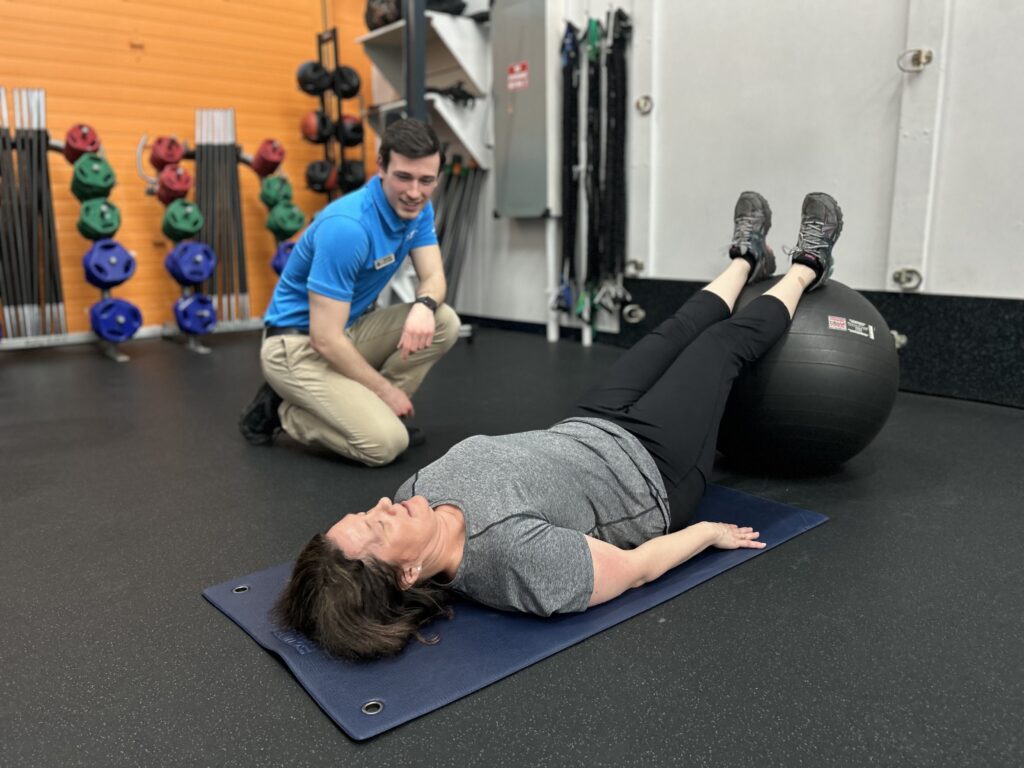
Find a Health & Fitness Coach for Lasting Change
The expert approach works well in acutely dire circumstances. I’m not looking for someone to respect my autonomy if I’ve just been wheeled into the ER after a serious car accident. Bring me the best surgeon you have and save my life, I’m not interested in answering questions. Apart from these acutely dire situations, a coach that respects autonomy is always the way to go if you’re looking to make lasting behavior changes that lead to sustainable improvements in health and fitness.
There are many great exercise professionals that embed the philosophies of Fitness Coaching into their scope of practice, driving sustainable and lasting results for their clients. Health & Fitness Coaching is at the very heart of the MY90 program at Applied Fitness Solutions. Every day we get to see the positive impact of taking the coach approach with our clients. It is life-altering to watch the power of coaching help our clients take back control of their health. Find a Fitness Coach and you, too, can take control of your health and fitness once and for all.

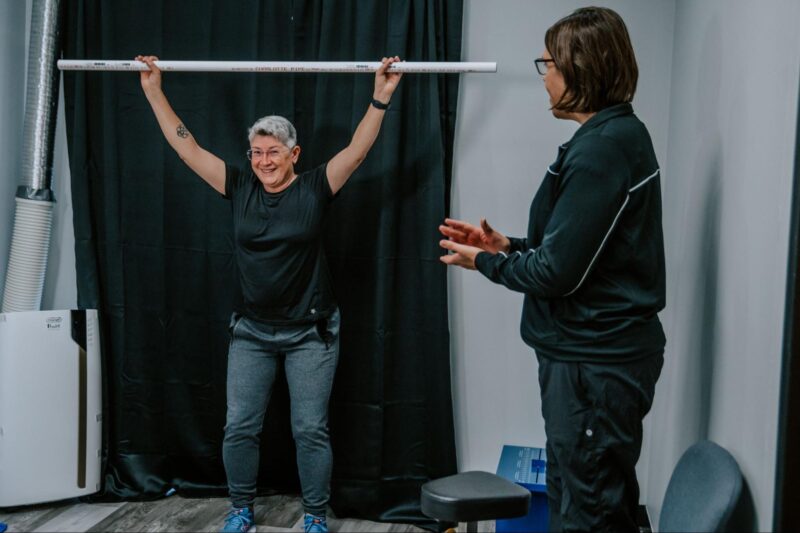
About the Author:
-

Michael Stack is the founder & CEO of Applied Fitness Solutions and Frontline Fitness Pros. He is a faculty lecturer for the University of Michigan’s School of Kinesiology. He is also the creator and the host of the Wellness Paradox Podcast, produced in conjunction with University of Michigan.
Michael is an exercise physiologist by training and a health entrepreneur, health educator, and fitness industry advocate by trade. He is dedicated to enhancing the standard of practice of, and advocating for, fitness and wellness professionals to ensure they become an essential constituent in the healthcare delivery system.
With a career spanning over three decades in fitness, health, and wellness Michael has a deep knowledge of exercise physiology, health/wellness coaching, lifestyle interventions to mitigate chronic disease and leadership. He is credentialed through the American College of Sports Medicine (ACSM) as an Exercise Physiologist (ACSM-EP), Exercise is Medicine practitioner (ASCM-EIM), and a Physical Activity in Public Health Specialist (ACSM-PAPHS). Michael is a National Strength & Conditioning Association (NSCA) Certified Strength & Conditioning Specialist (CSCS), and a CDC Diabetes Prevention Program (DPP) Lifestyle Coach.
Michael received his undergraduate degree from the University of Michigan’s School of Kinesiology in 2004 and is currently a Master’s of Public Health (MPH) candidate at University of Michigan, with a specific concentration in health behavior and health education.
Michael is a board of directors’ member for the Physical Activity Alliance and Michigan Fitness Clubs Association. He sits on the University of Michigan’s School of Kinesiology Alumni Board of Governors. Michael is an expert curriculum reviewer for the American College of Lifestyle Medicine. Finally, he is a member of the executive leadership team for American Heart Association’s Heart Walk.
Michael lectures nationally for several health/fitness certification and continuing educations, including; IHRSA, the Medical Fitness Association, the National Strength & Conditioning Association, and SCW Fitness.
